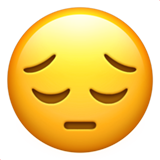Page 2 of 11
Re: It's About Time C
Posted: October 12th, 2014, 7:02 pm
by raxu
How many of the 100 points in this event do you need for a top score? 96, or something? The 0.1 sec sounds pretty hard. Any tips for how to calibrate the device? 0.1 second is so short that I don't even know how I can get so accurate.

My first year in division C, so very noob at this event.
Re: It's About Time C
Posted: October 13th, 2014, 5:03 am
by chalker
raxu wrote:How many of the 100 points in this event do you need for a top score? 96, or something? The 0.1 sec sounds pretty hard. Any tips for how to calibrate the device? 0.1 second is so short that I don't even know how I can get so accurate.

My first year in division C, so very noob at this event.
This event has 't been run since 2009, so pretty much everybody is a 'noob' in it. The points you need to get a medal will vary widely from tournament to tournament depending on the level of competition.
Re: It's About Time C
Posted: October 13th, 2014, 7:35 am
by syo_astro
raxu wrote:How many of the 100 points in this event do you need for a top score? 96, or something? The 0.1 sec sounds pretty hard. Any tips for how to calibrate the device? 0.1 second is so short that I don't even know how I can get so accurate.

My first year in division C, so very noob at this event.
Second on what chalker said. I would say depending on the level everyone will have fairly accurate time-keeping, so you definitely want to try and make sure you're solid on the test too. One thing in general you can do for builds is use excel or some function to figure out at what point the accuracy doesn't become so important (to not waste too much time getting it perfect...I just mean looking into the scoring formula a bit, which I don't know). As for device calibration, that varies COMPLETELY on the device. There are ways to mechanically build into the device something that makes it easier to tell the period, but those can be difficult/loud. In general, you can measure amplitude fairly precisely/accurately, and I thought you could just count periods and figure out the last bit from the amplitude (again, highly dependent on the type of clock you're using).
Re: It's About Time C
Posted: November 30th, 2014, 1:16 pm
by superblackcat
Does anyone have anything more specific for the It's About Time test? From the rules, it seems that the proctor can include anything he wants as long as there are 3 questions that pertain to the 3 sections listed.
Re: It's About Time C
Posted: November 30th, 2014, 2:26 pm
by chinesesushi
superblackcat wrote:Does anyone have anything more specific for the It's About Time test? From the rules, it seems that the proctor can include anything he wants as long as there are 3 questions that pertain to the 3 sections listed.
Exactly. I believe those 3 sections are the only limitations, from what I've seen. You should have someone who is experienced in Astronomy, because many of the questions will pertain to astronomical concepts. Also, look high and low from practice tests and if you see something you don't know, shove it into your binder. Same goes for Wikipedia articles, just follow the "Related" links at the bottom of the page and print all that stuff out.

Re: It's About Time C
Posted: November 30th, 2014, 3:38 pm
by syo_astro
I made a test over the summer for SSSS to add to the test exchange ideas on what could be tested on. For my own team I had a whole ton of other (far harder muahahahah...beside the point) ideas on questions too. The event is definitely broad, but I try to put in the theme to my test that if you keep organized and split up the topics enough you can more or less be prepared enough for most questions. There are some that are a bit ridiculous I would say I wouldn't have wanted to put on there (the Feynman diagram axis thing I threw on as a joke), but there's plenty of that test alone to learn from I feel (and there's the past test from Tiger I believe on there too). Since the rules are what they are, just use google, books, whatever you use to collect the vast amounts of info for other events, etc. If you're having trouble finding sources on say quartz clocks, then have you googled them? Really a lot of these things there's plentiful information on, and if you just start searching up clock types, physics involving time, etc, you already have plenty to study. I agree some test makers are somewhat random, and the rules make it a bit difficult to study, but don't get intimidated. My only other recommendation is don't only focus on astro, time terminology, physics, etc (one aspect of the event). There could always be some random history you don't know, so make sure to keep some breadth to your studies.
Lastly, a proctor/testmaker can be a she too

(I'm a he...but hey, still).
Re: It's About Time C
Posted: November 30th, 2014, 5:09 pm
by elephantower
Has anyone here tried using a cycloidal pendulum? How well do you think that would work? Also, what would be the best way to start 2 pendulums at the same time?
Re: It's About Time C
Posted: December 3rd, 2014, 2:59 pm
by gunhok
I have two questions about this event:
1. Is an electronic balance allowed? I am making a sand glass and we are going to measure the time by weight instead of approximate height.
2. How is this event going to work? Are they going to tell us a time we need to find or are they going to say go and stop and ask how much time has passed?
Re: It's About Time C
Posted: December 3rd, 2014, 3:30 pm
by chalker
gunhok wrote:I have two questions about this event:
1. Is an electronic balance allowed? I am making a sand glass and we are going to measure the time by weight instead of approximate height.
2. How is this event going to work? Are they going to tell us a time we need to find or are they going to say go and stop and ask how much time has passed?
Both of these are very clearly answered in the rules. While I could easily give you the answers, the fact you are asking these makes me think you haven't looked at the rules at all. There are a lot of other details in the rules you need to be aware of, so you should get a copy from your coach ASAP and review them closely.
Re: It's About Time C
Posted: December 14th, 2014, 12:59 pm
by Toms_42
Anyone have a good source on the length of a jiffy, shake, glass, fortnight, lustrum, blink, etc? It was tested on the northview test, and I can't find much on them.
 My first year in division C, so very noob at this event.
My first year in division C, so very noob at this event.